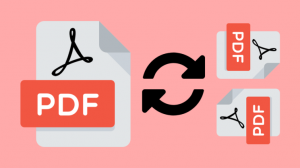We live in times when a significant part of the business is conducted through the internet. Web applications have become an invaluable tool for companies to provide information about goods and services, sell their products, communicate with customers, etc.
However, there comes a question: how to ensure that your web app will draw customer attention and meet their ever-growing demands. Here are some handy tips for building a user-friendly custom web application that will live up to your expectations and enhance user engagement.
How To Create a User-Friendly App
Due to the tough market competition, modern customers have become more demanding to web app performance and UI. According to the SWEOR survey, 38% of internet users stop interacting with a poorly designed application. Thus, it goes without saying that if you want your web app to be appealing to customers, you have to make it intuitive, informative, visually attractive, and easy to use. Let’s look into the main aspects to keep in mind when building a user-friendly web app.
1. Create The Right First Impression
According to the research, the first impression is formed within 0,05 seconds. It is the time that determines whether customers will continue using the app or close it. The main elements that influence the first impression are color, text, and visual information.
- Colors. It’s a powerful tool that can trigger different customer emotions and feelings. When choosing a palette for your web application, opt for the colors compatible with the sphere of your business. Hardly ever would a customer trust a banking app with plenty of clashing colors, however, it can be an appropriate solution for the app in the art sphere.
- Text. To maintain customers’ interest, reduce the amount of text information. While optimizing your web app for mobile devices, consider the option of limiting displayed content, for example, by adding the “read more” feature.
- Visual information. Images, videos, and other types of visual content can be an effective solution to increase user engagement. However, before adding them to your web application, ensure that they are of good quality and suit your general design concept.
2. Develop An Easy Navigation
To make your web application more user-friendly it’s important to follow some tips to provide customers with an intuitive and UI design agency.
- Stick with familiar patterns in your app. Users are likely to choose applications with familiar navigation. Not only will universal patterns make your customers feel more comfortable but also help you build more responsive and robust applications since these navigation solutions have been already thoroughly tested by others.
- Optimize the menu. When creating the menu, it’s important to prioritize the categories by analyzing customer interests. Menus with excessive and poorly grouped drop-down elements seem too complex and fail to meet customer demands.
- Show people where they are. No one likes to feel confused when having no idea where they are and how to go back. Thus, it’s reasonable to empower your web application with navigation solutions to help your customers find their ways back such as breadcrumbs or a footer that leads to the homepage.
3. Simplify Registration and Information Entry
Web applications often ask users to enter different kinds of information. The registration process, authentication, order placement, etc. often become time-consuming and tedious discouraging customers to repeat such an experience. Thus, to boost web app efficiency and increase conversion rates, it’s necessary to make the information entry time-saving and simple.
- Time-saving. Data entry shouldn’t take too much time. One of the possible solutions is to improve the authentication process allowing customers to use automatic login or biometrical information.
- Simple. When creating a user-friendly web app, it’s better to avoid adding numerous form fields. Mostly used in the registration process they are considered off-putting and lead to poor user engagement.
4. Build Your Custom Web Application With Your Target Audience in Mind
A successful custom web application should meet the demands of a specific target audience. Companies, thinking that it’s possible to develop an app complying with the expectations of various user groups, usually end up cluttering it with unnecessary features. Thus, before building an app, it’s necessary to define your target audience and decide how they will benefit from using your application. Addressing a specific customer group with particular needs will help you develop a well-performing app that will boost customer experience.
5. Test and Analyze
Testing is a crucial step on the way to a user-friendly web application. It helps companies identify and resolve issues connected with web app loading speed, security, usability, etc. Thus, by testing the app, you can deliver an enhanced user experience and prevent future expenses and losses.
What is more, it’s crucial to keep track of your user behavior to understand the current progress of your web app and to optimize its performance in the future. Since user behavior depends much on technological trends it’s very dynamic. Therefore, it’s important to encourage feedback and listen to your customers to keep up with their expectations.
Conclusion
A user-friendly app is an intuitive, responsive, and consistent application that every modern company is craving to develop. It helps businesses to expand audience reach and improve company performance by drawing and maintaining customer attention. Rocket Lab states, “when building an app for your business, define your target audience, focus on its needs, opt for a neat design and clear navigation bearing in mind constant analysis for possible improvements”.
However, the important thing to keep in mind is that building a user-friendly app is not only about following the tips but also about using the services of an experienced web application development company.
Follow TechRado for more informative articles.





